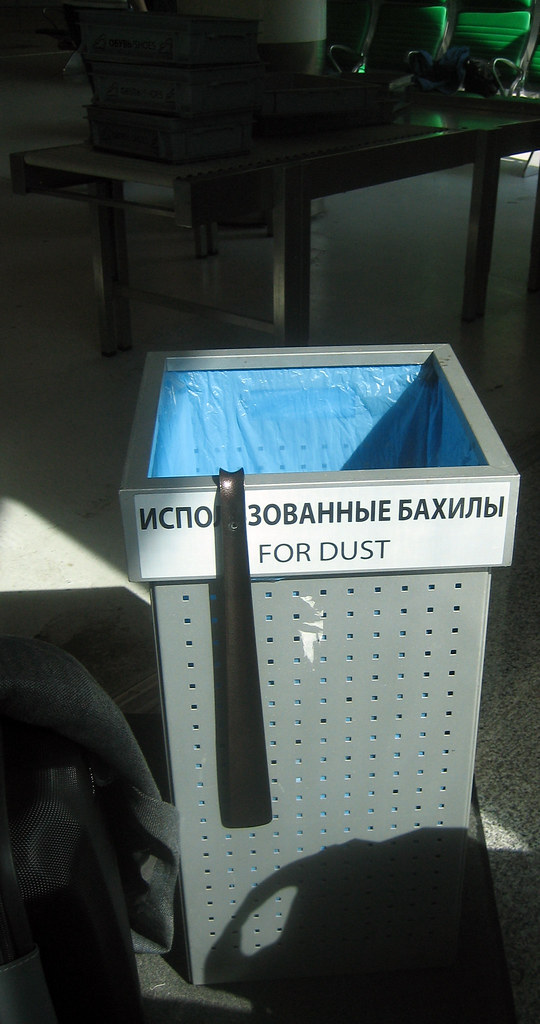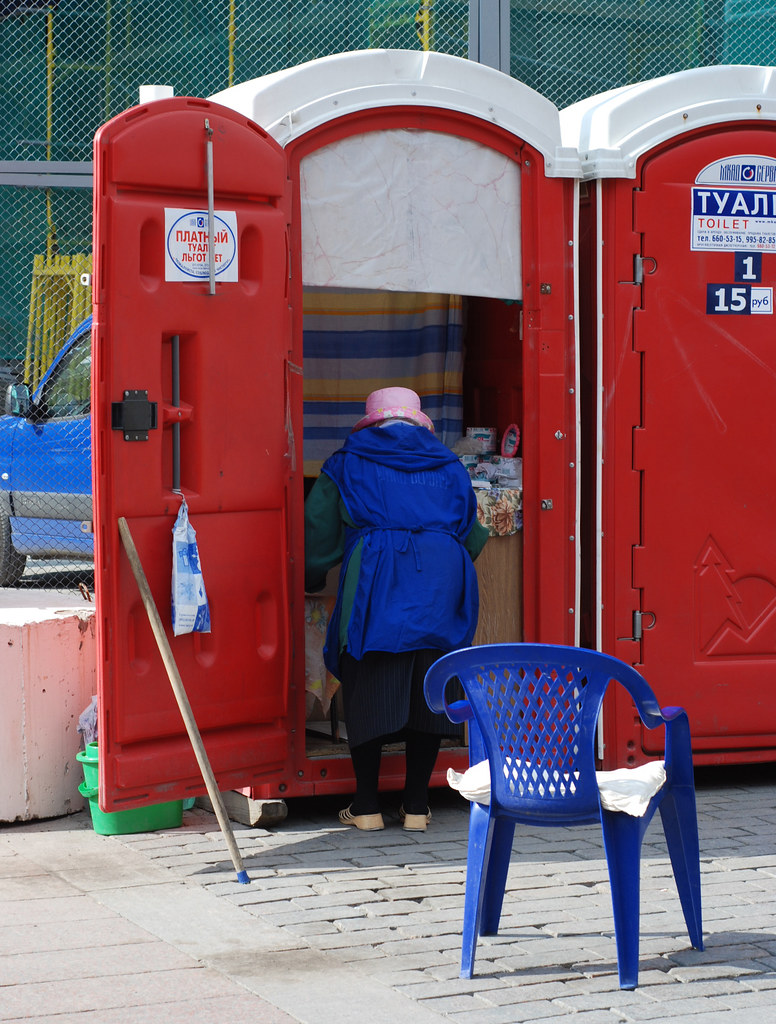 Do not talk to strangers and certainly do not get in their cars. That is what I have been taught all my life. Yet, getting into a stranger’s car is exactly what you have to do in Moscow, if you want a ride from point A to point B. Taxis in Moscow are almost non-existent. You can order one over the phone, but it will take considerable time for it to come and pick you up.
Do not talk to strangers and certainly do not get in their cars. That is what I have been taught all my life. Yet, getting into a stranger’s car is exactly what you have to do in Moscow, if you want a ride from point A to point B. Taxis in Moscow are almost non-existent. You can order one over the phone, but it will take considerable time for it to come and pick you up.Entrepreneurial car owners work hard to fill this deficit in licensed taxis. If you stand on the curb and stretch your arm out, a private car will inevitably pull over. You give the driver your destination and bargain over the price. Once you agree on the price, you can get in the car. If you cannot agree, you try your luck with a different car and driver.
Russian society is still rather male dominated. A lone woman hailing a car late at night would not surprise many. However, a woman, accompanied by an able man, yet still doing all the talking, and making decisions herself does put the drivers on guard. Since Nick does not speak Russian, I had to talk to the drivers, while they stared at Nick clearly wondering why they had to deal with a woman.
As on our previous trip, when coming back from our friends’ house late at night, Nick and I decided to get a car. Our friends expertly flagged down the car, settled on the price, and ushered us in. Since all the required conversation with the driver was finished, I let Nick get in the front in hopes of preserving appearances.
The minute we got in the car, the driver yelled at Nick for closing the car door too hard. I apologized profusely, while Nick, all flustered, kept trying to buckle up. “You don’t need to buckle up,” said the driver. “He likes to,” I squeaked from the back seat. “What is he, American or something?” So much for appearances. I had to admit that Nick was American, and thus a can of worms was opened.
While speedily weaving between traffic and swearing at his fellow drivers, our driver proceeded to tell me the story of some distant relative of his wife, who moved to Anchorage, Alaska, after marrying an American woman. Six children later, this relative left the woman because she gained 200 pounds. The story did not end there. The woman’s second marriage, 3 more children, and a divorce were all presented to prove the inferiority of American women.
I tried hard to keep quiet and agree with everything the driver said. The conversation soon shifted to comparing salaries and the cost of living in Russia and US. One careless statement from me, referring to “our country” when talking about US, and my last secret was out. “What, you live there too?!” “Yes actually, that is my husband sitting in the front.” The driver’s interest only perked up, and more questions about money, jobs and real estate prices followed.
At some point we started talking about taxi cabs. I had to explain that if I tried to flag a car down in Boston, only licensed taxis would pull over, and that I would never get into a private car even if one did stop. He was surprised to hear that I was weary of being assaulted or kidnapped when getting into a stranger’s car that was not a licensed taxi in any city including Moscow. The driver laughed when I asked him if he was afraid of being assaulted or robbed when picking random people. He said that unlike in other cities, people in Moscow were very friendly—in the past year he has been assaulted only 3 times. “My point exactly,” I thought to myself and felt very thankful that we were almost home.











